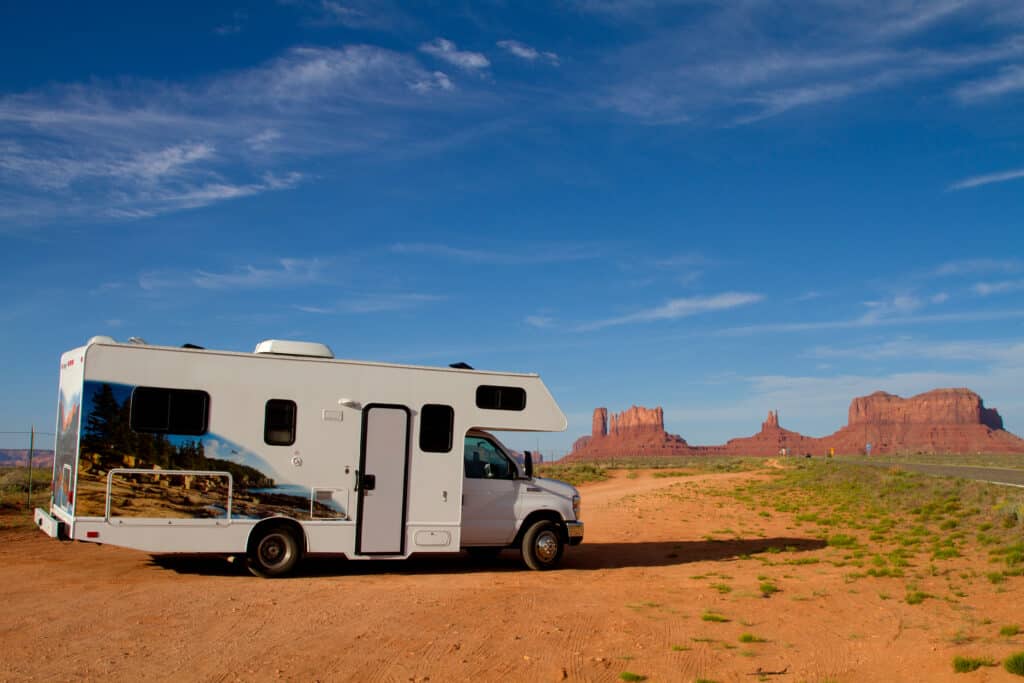
Knowing your motorhome gas mileage is super important because you can figure out what to expect in costs of travel. Once you know, you can figure out how to improve the mileage your vehicle is getting. Keep in mind that a motorhome’s gas mileage depends on many factors, and overall is not as efficient as passenger cars. This article does not address towable RVs, just motorhomes. Here’s a quick guide to know what kind of fuel economy motorhome RVs get.
Quick Start Guide to Motorhome Gas Mileage
Got a Class A Motorhome? Expect 7 – 13 average miles per gallon.
Do you own a Class B van camper? You get the best fuel economy, with 18 – 25 average miles per gallon.
Are you a Class C motorhome owner? Overall you’ll get 14 – 18 average miles per gallon.
Average Motorhome Gas Mileage Chart
| Type of Motorhome | Average Mileage |
|---|---|
| Class A | 7-13 mpg |
| Class B | 18-25 mpg |
| Class C | 14-18 mpg |
| Best Mileage: | Class B Motorhome |
Different types of motorhomes are going to have different gas mileage for many reasons:
- Different sizes affect fuel economy.
- The heavier and larger the motorhome is, the worse the gas mileage is generally going to be.
- Gas mileage can also vary depending on shape.
- And if you own a diesel powered RV, that also affects your fuel economy.
So what are the differences between Class A, Class B, and Class C RVs and why are their gas mileages so different?
Class A Motorhome Gas Mileage
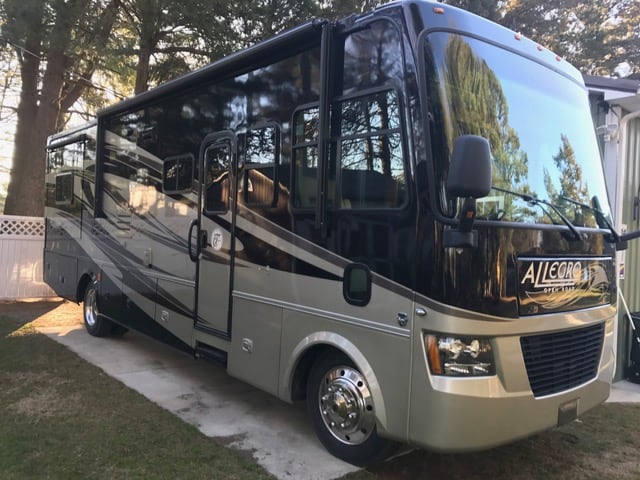
Class A motorhomes get the worst mileage out of the three types of motorhomes. This is due to the massive size and bus-like configuration of the vehicle. Class A motorhomes have a very blunt, and large build with all sides of the vehicle being very flat and abrupt, like that of a bus.
The Class A motorhome gets the worst gas mileage because of its very large and flat features. This makes road travel hard due to disturbances in wind force and a heavy weight to move. The front of this bus-like vehicle is very flat which makes travelling difficult because it has to push against the natural force of wind when in motion. The wind has no easy way to glide off of the vehicle. This lack of a smooth, slanted surface for easy wind flow, makes the engine have to work harder to power and move the vehicle.
Another huge factor in the awful gas mileage of this RV is the massive weight. Class A motorhomes on average weigh 35,000 pounds which is the equivalent of about 17.5 tons! This is a lot of vehicle weight that the engine has to pull, resulting in a LOT of work that the engine has to do in order to pull the vehicle which eats up your fuel. The more work the engine has to do, the worse the gas mileage is going to be.
The average mileage that this type of motorhome gets is around 7 to 13 miles per gallon.
Class A motorhome gas mileage examples
| Class A Motorhome | Mileage |
|---|---|
| Fleetwood Bounder | 8.5 mpg |
| Tiffin Open Road Allegro 32 SA | 7 mpg |
| Thor Palazzo | 10 mpg |
| Forest River Berkshire | 9 mpg |
| Newmar Dutch Star | 8 mpg |
| Fleetwood Excursion | 10.1 mpg |
| Monaco Vesta | 10.7 mpg |
Class B Motorhome Gas Mileage
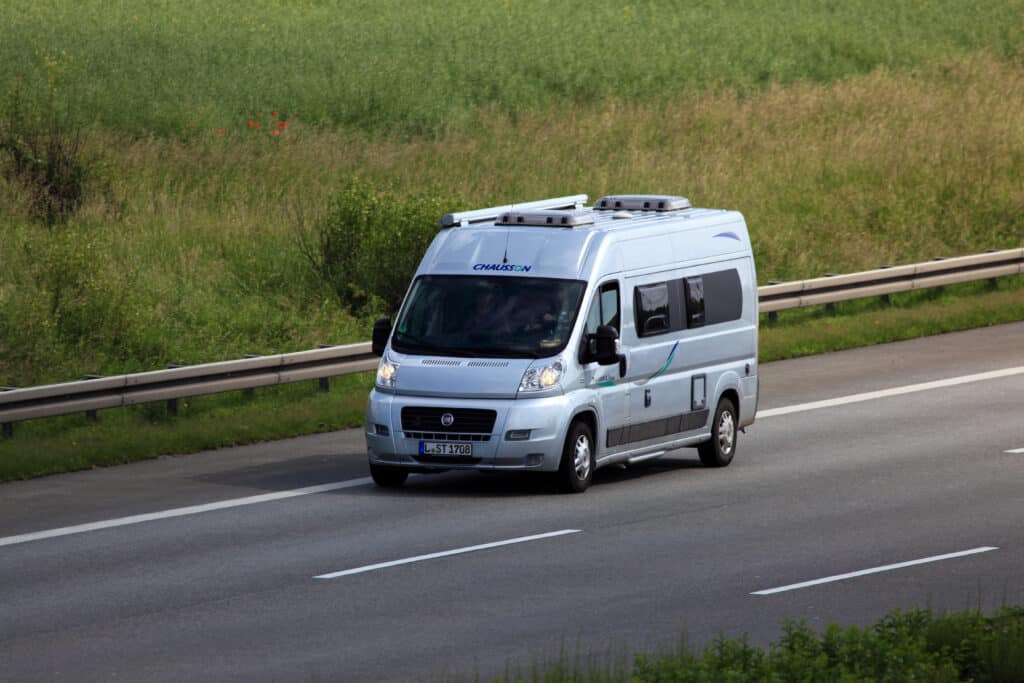
Class B motorhomes get the best mileage out of all three types of motorhomes. This is because of the shape and weight of the vehicle. Class B motorhomes have a very sleek build and the front end of the vehicle (hood and window) is slanted with a smooth transition to the roof of the vehicle.
This lack of disturbances to the flow of wind force help the car to get better gas mileage. Without an abrupt, flat surface working against the flow of the wind force, it can travel much smoother than Class A and Class C motorhomes. This helps to provide Class B motorhomes with better mileage due to not having to work so hard to push through opposing forces.
Another factor that plays into the good gas mileage of this RV is the weight. This is the lightest type of motorhome you can get. Weight is a huge factor in determining how much the engine will have to work to power and pull the vehicle, which factors into how good or bad of gas mileage a vehicle will get. The lighter weight of this RV helps the engine to not have to work quite as hard which improves the gas mileage that the car gets.
The average mileage that this type of motorhome gets is around 18 to 25 miles per gallon. This is actually better than some larger diesel trucks even get.
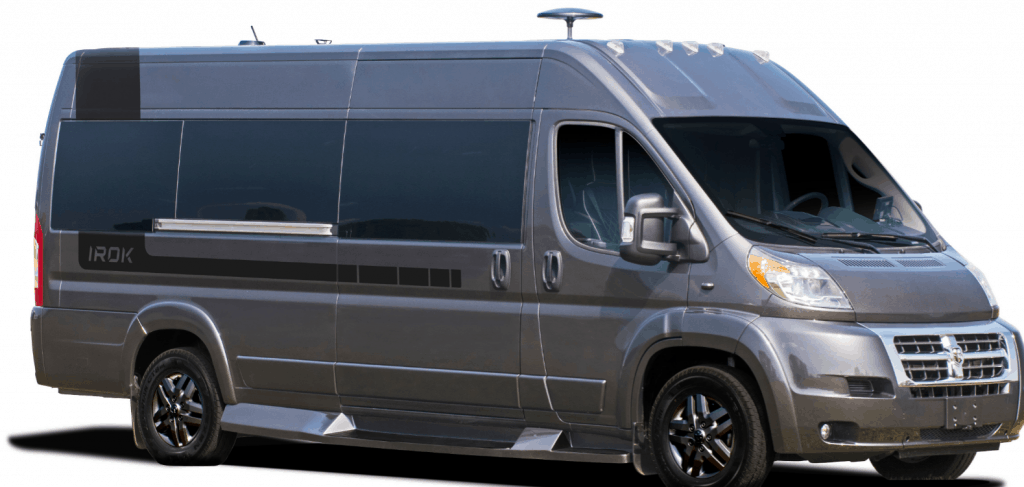
Class B motorhome gas mileage examples
| Class B Motorhome | Mileage |
|---|---|
| Winnebago Travato 59G | 20 mpg |
| Airstream Interstate Grand Tour Ext | 19 mpg |
| Midwest Automotive Design Passage 170 Ext MDP4 Lounge | 19 mpg |
| Roadtrek CS | 18 mpg |
| Airstream Grand Tour Twin | 17 mpg |
| Winnebago Rialta | 19 mpg |
| Roadtrek Sprinter RS Adventurous | 20 mpg |
Class C Motorhome Gas Mileage
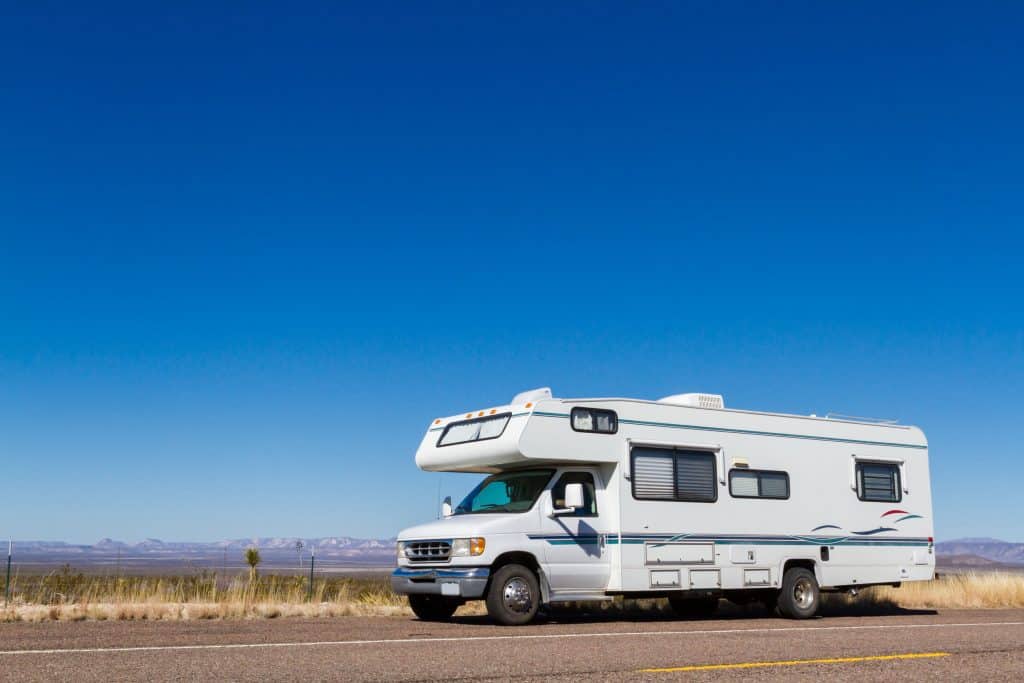
The Class C motorhome comes as second best in the running for best mileage. This, as you may have guessed, is ALSO due to the build and weight of the RV. Class C motorhomes are similar in build to the Class B, but they have a few differences which factor into why Class C get worse gas mileage.
Class C motorhomes have a pretty smooth, sleek front like the Class B does, but Class C motorhomes have a bunk in the trailer portion that hangs over the cab of the cockpit in the vehicle. This overhang creates an obstruction for the flow of wind off of the vehicle, like the Class B motorhome has.
The Class C motorhome also weighs a bit more than a Class B does. This is due to the extra trailer space, from the overhanging portion of the trailer, and because Class C motorhomes are generally bigger than Class B motorhomes are. Like with Class A and Class B, this weight distribution and wind flow is what makes the Class C motorhome second in the ranking for best mileage.
The average mileage that this type of motorhome gets is around 14 to 18 miles per gallon.
Class C motorhome gas mileage examples
| Class C Motorhome | Mileage |
|---|---|
| Thor Freedom Elite 24FE | 13 mph |
| Forest River Sunseeker 2420 MSF | 7.4 mpg |
| Winnebago View 24V | 16.5 mpg |
| Tiffin Wayfarer | 14 mpg |
| Fleetwood Pulse 24A | 15.2 mpg |
| Itasca Navion Motorhome | 18 mpg |
| Forest River 3010DS | 9 mpg |
What affects the gas mileage a Motorhome gets?
The gas mileage you will get when driving will vary depending on the state of your driving. Your vehicle usually has the best gas mileage at around 60 mph. You will also get worse gas mileage if you are driving up-hill, on uneven terrain, or on a curvy road. Your gas mileage will tend to improve when driving on a straight, flat road, have the coast on, or driving downhill.
A big question that you might be thinking is “Why do motorhomes get such awful gas mileage?” The gas mileage numbers definitely seem absurd, but I will explain to you exactly why they are where they stand and it will make sense.
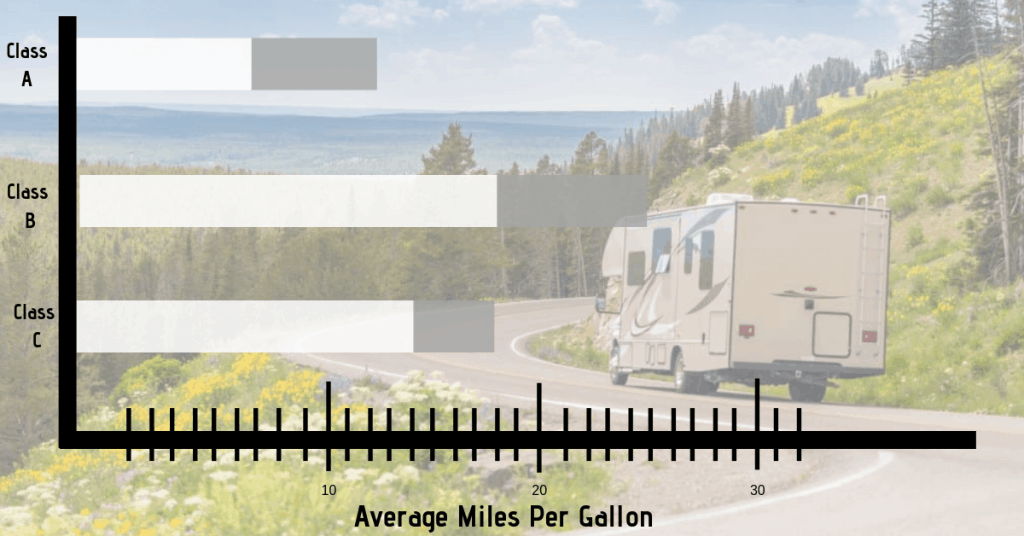
So, what causes this terrible gas mileage?
- Weight
- Size
- Length
How motorhome weight affects gas mileage
As you can tell, motorhomes are rather large vehicles. Along with this largeness, comes the weight of all of the parts that are incorporated in this pristine traveling machine. Plus, these parts can get quite heavy themselves. The engine for a motorhome itself can weigh anywhere from 500 to 2500 pounds easily. This is simply one of the many important and heavy parts that are put into the making of a motorhome.
Motorhomes weigh anywhere from 10,000-40,000 pounds. This is because of all of the many heavy parts that go into making these vehicles so they can run and drive etc. This heavy weight has to be pulled by the engine to get the car to drive forward. This pull on the engine will need to be fueled in order to perform this task, which is what ends up eating up your fuel and making your mileage not so great.
Your motorhome size impacts gas mileage too.
Another contributing factor to how bad your motorhome’s gas mileage is would be the size of the vehicle. The bigger the size of the motorhome, the worse gas mileage your motorhome will get. This is because with a bigger vehicle, comes bigger and more parts necessary for making it able to run. The more parts you incorporate, the heavier it gets and the more pull on the engine that it exerts.
The longer the motorhome, the worse the gas mileage.
Something else that contributes to this bad gas mileage would be how long your motorhome is, especially with Class A motorhomes. This correlates with the same logic as how the size affects the gas mileage. The longer your motorhome is, the bigger it will be. The bigger your motorhome is, the more parts it needs, making it heavier and harder for the engine to pull.
Why Diesel Motorhomes Get Better Mileage Than Gas Motorhomes
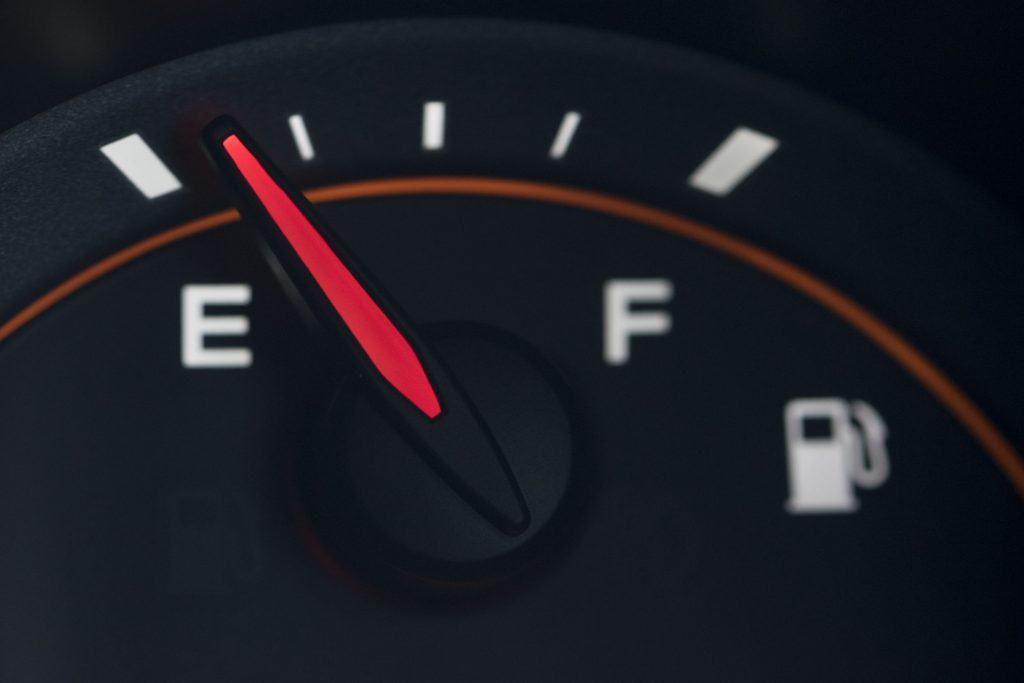
If you are looking to find a motorhome that gets slightly better gas mileage, I would look into getting a diesel fueled motorhome instead of a gas fueled. This is because diesel fuel motorhomes get better gas mileage than gas ones do!
- Diesel fuel actually provides around 10%-15% more energy than normal gasoline does which helps make it more fuel efficient.
- Because of this extra energy efficiency, diesel vehicles actually get 20%-35% better gas mileage than gasoline fueled vehicles.
- As a result, diesel fueled vehicles can drive much further on the same tank of gas that a gasoline fueled vehicle might.
If you are looking into motorhomes that get better gas mileage I suggest getting a diesel fueled vehicle.
How to Get Better Motorhome Gas Mileage
If buying a motorhome powered by diesel fuel is not an option, try these tips to get better motorhome gas mileage.
Pack Light
The heavier the weight of the vehicle, the worse gas mileage you will end up getting because of the harder pull on the engine. Just like the general vehicle’s weight, anything you put in your motorhome is going to add to this overall weight pulling on the engine. By packing light for your trips, you can improve your gas mileage because you won’t have nearly as much pull on the engine.
When you put lots of stuff in your motorhome to take with you on your trip, it makes the vehicle MUCH heavier than it would be originally. This extra weight adds up much quicker than you would think it does. Just keep in mind how much weight you are adding to your motorhome when packing because anything you put in will add to this huff that the engine will have to go through to pull the weight, causing your gas mileage numbers to plummet.
Keep up with Motorhome Maintenance
It is important to keep up with general motorhome maintenance. This will help your RV to run at the optimal level. By keeping up with the general maintenance, your engine will run better and the other parts will work at pristine levels as well.
General Motorhome Maintenance Chores:
- Engine Check Ups
- Fluid Check Ups and Replacement (Oil, Windshield Washer, Radiator, Power Steering, Brake, etc.)
- Tire Pressure
- Tire Rotation/Replacement
- Brake Replacement
- General Cleaning (Inside and Out)
- Etc.
Having everything in pristine condition, up to date and as clean as can be, will help everything to run better and make your trip better.
Slow Down
Your vehicle is going to get the best gas mileage when driving at about 60 mph. If you are looking to get the best gas mileage possible, drive as close to 60 mph as possible. By managing your lead foot, you can save yourself a bit of money by getting better gas mileage.
Drive a Smaller Motorhome
Like with normal vehicles, driving a smaller vehicle will help you to get better gas mileage. This is because the vehicle is lighter in weight, which creates less of a pull on the engine.
Class B motorhomes are actually the RV’s of this style that will get the best mileage, compared to Class A and Class C. Along with generally being a smaller size than the others, The sleek build and styles of this RV, specifically the smooth, slanted front, helps as well because the wind a smooth surface to roll off of instead of the blunt impact it would get when going against a Class A or Class C motorhome.
Use Cruise Control
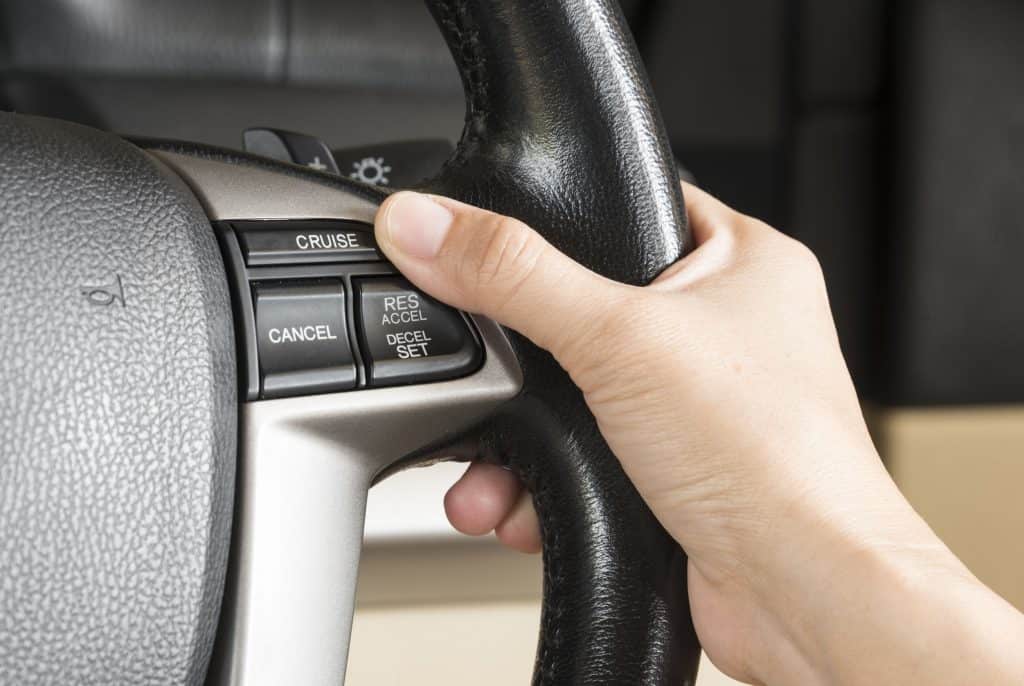
When driving without cruise control, most people tend to fluctuate their speeds quite a bit. This constant fluctuation of speed will pull harder on your engine because it has to adjust to each fluctuation, resulting in worse gas mileage.
A way to improve your gas mileage and avoid this engine pull is to set your cruise control whenever possible during travel. By setting your cruise control, your vehicle’s speed won’t be fluctuating all of the time and won’t pull on the engine nearly as much, improving your overall gas mileage.
Avoid Traffic
Like using cruise control, it is best to avoid traffic so that you can avoid stop-and-go style driving. This constant fluctuation in speeds and pull on the engine from the stop-and-go driving will really eat up your fuel, resulting in worse gas mileage. Avoiding heavily populated areas, and especially inner city driving, will help to improve your gas mileage by eliminating the stop-and-go style driving.
Drive Smoothly
Another thing that can be contributing to your bad gas mileage could be rough driving. If you aren’t able to drive in a straight line or are traveling on a bumpy road, or even off-road, this will contribute to horrible gas mileage.
Driving conditions that fall under this “rough” category include, but are not limited to, driving on a very curvy road, bumpy or unpaved roads, bad weather conditions such as snow, ice, wind, or rain, driving on a road with lots of hills, and basically anything that doesn’t involve driving on a flat road in a straight direction.
You can do your best to drive smoothly by driving in a straight line instead of ping-ponging in your lane or switching lanes a bunch and avoiding harsh weather and harsh road conditions if possible.
Use Less Air Conditioning
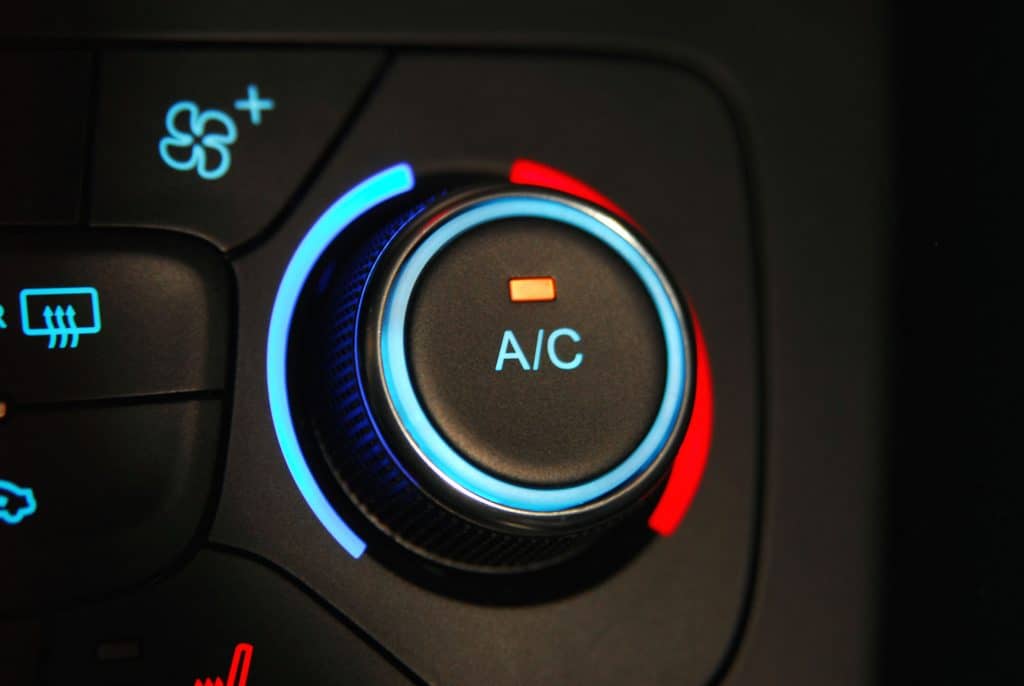
Running your air-conditioning on full blast while traveling can contribute to bad gas mileage as well. Running your air conditioning creates a pull on your engine because it has to run harder to power both your vehicle driving and power the air conditioning unit to provide you and your passengers with cold air.
Air conditioning won’t cause as much of a pull as other factors, it only costs you about 1 mpg from your overall gas mileage. But if you are doing anything in your power to get better gas mileage and you think this is worth it, then try running your air conditioning on the lowest setting possible or not at all.
Don’t Leave Your Engine Running
This is another thing that doesn’t do much but it does make a small impact on things still. Leaving your engine running seems like a super harmless task because you aren’t moving so it shouldn’t really burn up your fuel right? Well, that is actually wrong.
When your engine is running, it needs something to sustain it in order for it to run. This is where fuel comes into play. Leaving your engine running while the car is parked uses much less fuel compared to when it is trying to power a moving car, but this small act can still make a damper in your gas mileage.
Running your engine while parked makes a small impact on your gas mileage so it is ultimately up to you, of course, whether this is important enough for you to give up or not.
This video I have added is another great source of information and logistics on what improves or reduces your fuel economy for your RV.
Conclusion: Why Motorhomes Get Bad Gas Mileage
You will always spend more money on gas when driving a motorhome. They are just absolutely huge vehicles! Motorhomes weigh tens of thousands of pounds and that weight is super hard for the engines to move the vehicle. This pull on the engine is what eats up all of the fuel. The engine needs something to power it to perform these necessary tasks for the vehicle to continue running. If you want better motorhome gas mileage, get a diesel motorhome or keep on tent camping!

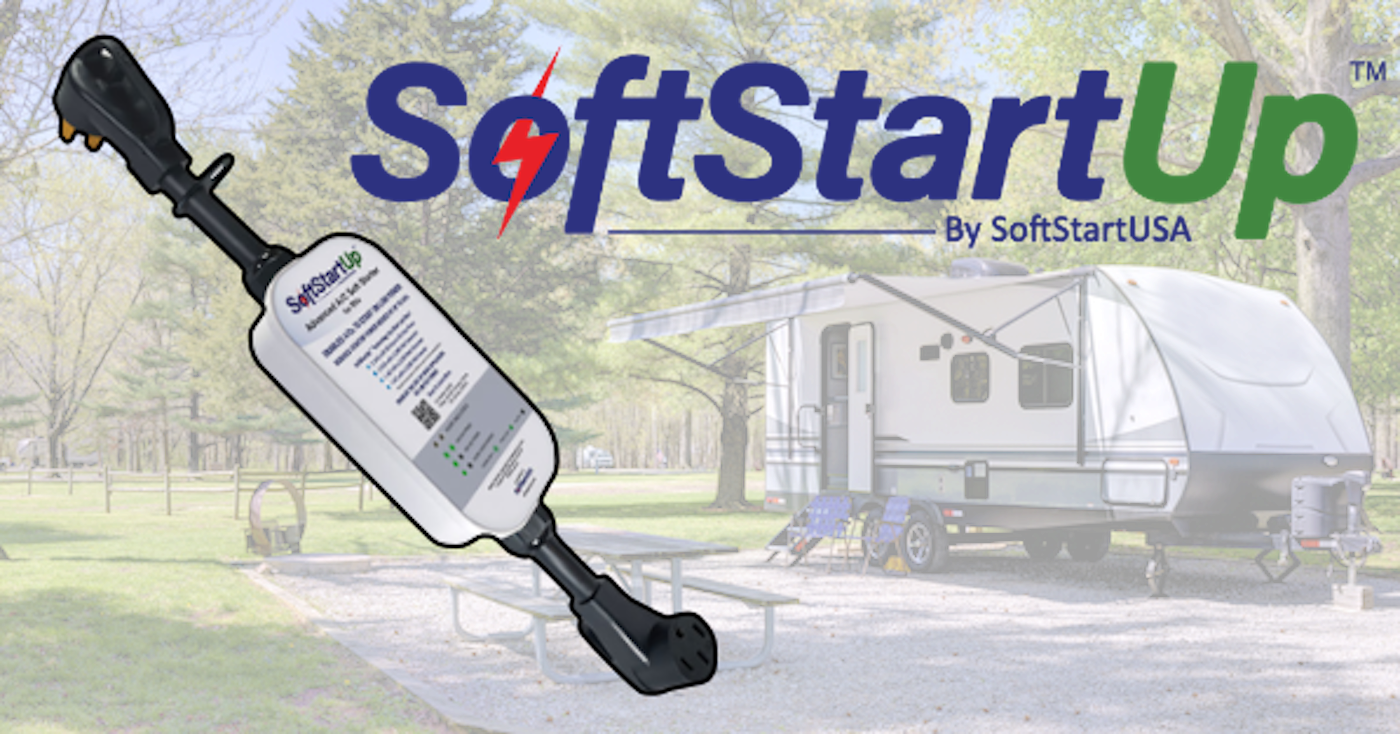
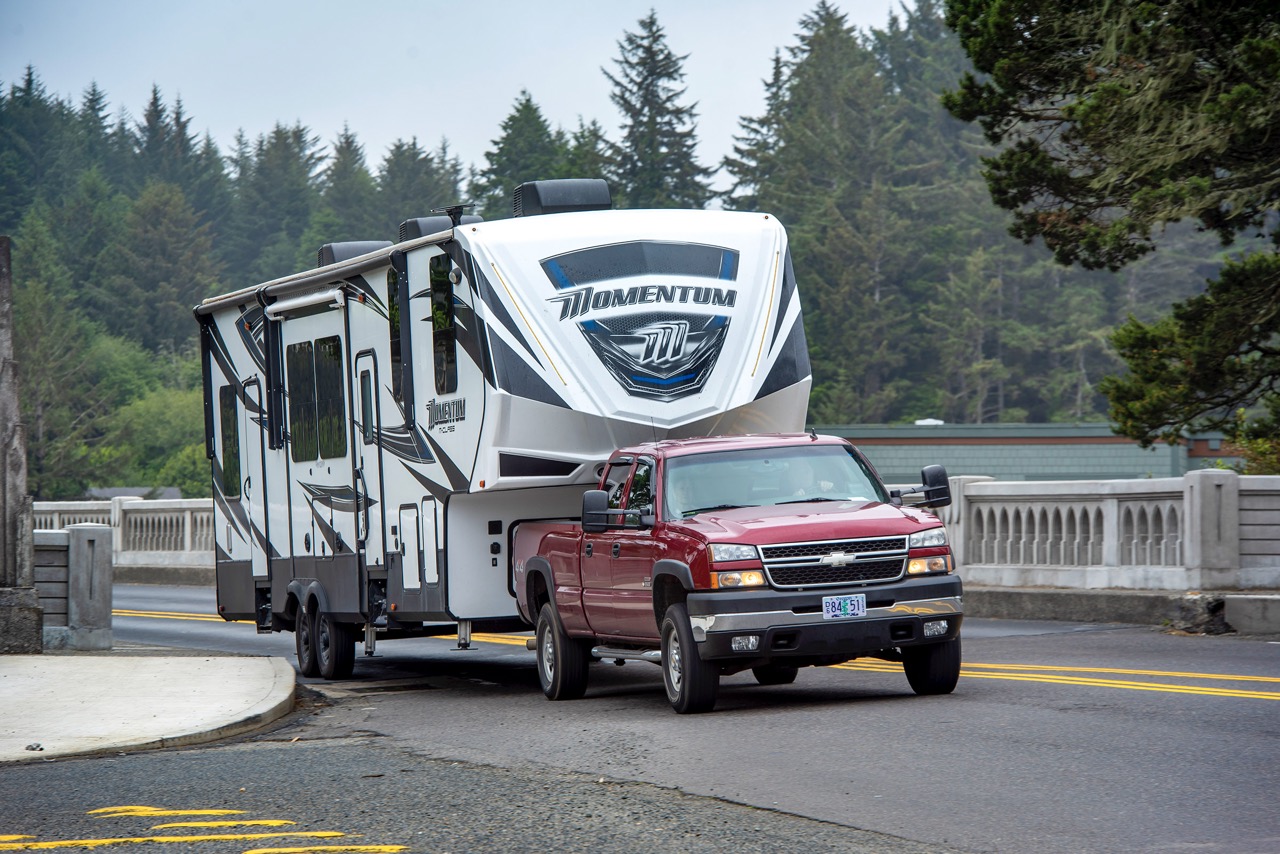
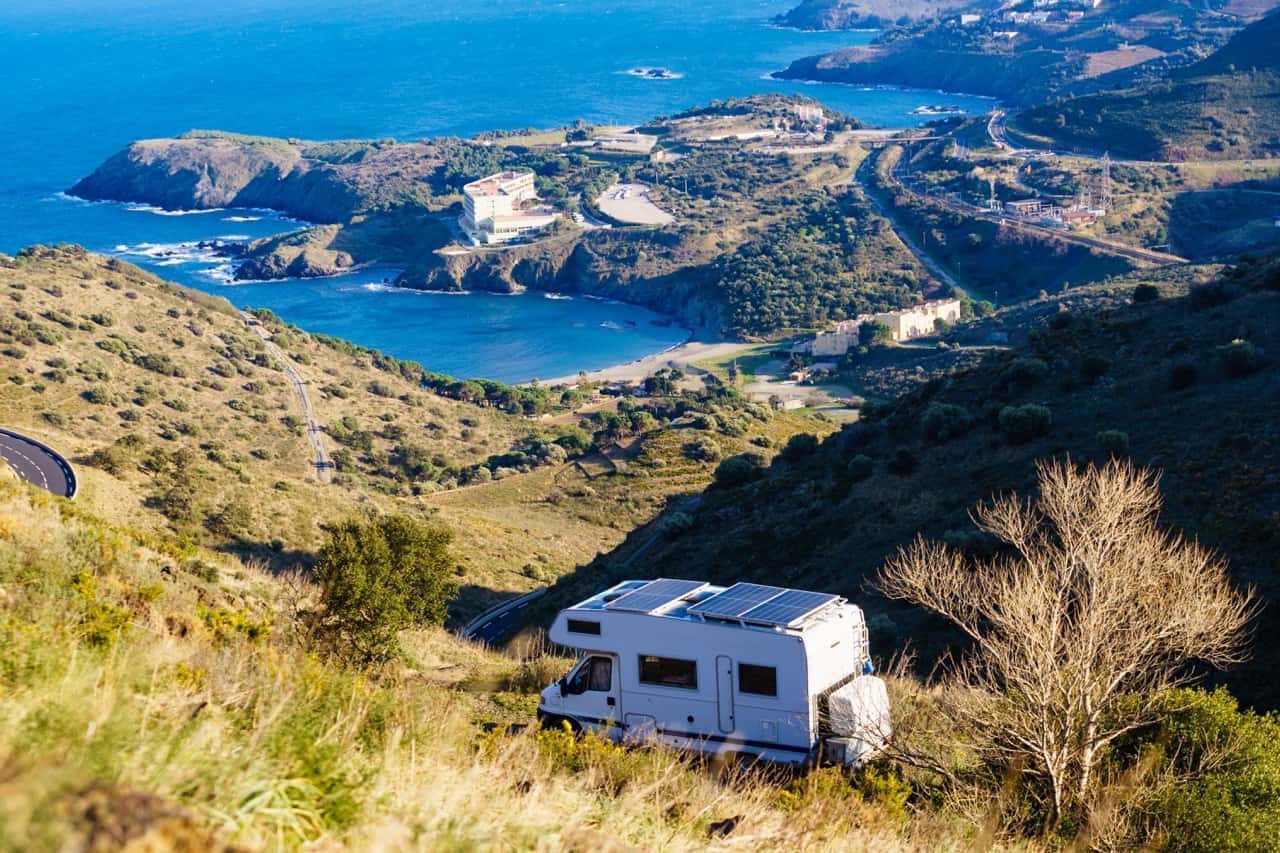
Gas RV’s just have to work harder they don’t have the torque of a diesel motor so they will by design burn thru more fuel.
Considering getting a used 30 ft. Class C with a 6.8L V10 and doubt it will get anywhere close to 14 to 18 MPG per the article. But that is the trade-off for not paying $80 – $100+ per night to stay in a boring and crummy motel room along with the risks of bed bugs, dirty bed sheets and a filthy bathroom.
Thank you for your helpful video. I’m looking forward to viewing more of your work.
Sincerely,
Gary
ith a little practice and e.xperience, you can achieve better mileage WITHOUT cruise control on hills and corners by planning the road ahead.
Yes Owen you are right as cruise control is affected by the slightest grade causing it to downshift that raise the rpms to try to go the same speed and the engine and transmission are trying to maintain the set speed and the constant shifting of the transmission abuses the transmission. A good driver can always get better fuel mileage than cruise control but you have to pay attention to all road conditions and speedup slowly and coast a little farther when coming to a stop light or sign. Mileage is greatly reduced when you try to accelerate too fast to keep up with cars.
I don’t know about others but I bought all of my vehicles with air conditioners so I could ride in comfort and only turn it off when climbing steep hills to allow the engine to run cooler. I am willing to lose a little fuel mileage for my comfort. Tire pressure has a great affect on fuel mileage and it should be set according to the Tire manufactures specifications based of the actual weight on each tire to reduce rolling resistance and increase tire life and your safety. Right after I am done fueling and cry for a minute or two, I remember why we bought a Class A, all the comfort and room to relax. Our Motorhome is our third home and it just happens to be the only one that is
to mobile. 7 to 7.5mpg is what was expected and that is what we got. Enjoy the ride and see the country..
Thanks for this article. I am looking for an answer to my question:
What is the difference in Gas Mileage between a 24-foot Leprechaun Coachman and a 28-footer.
I need the most specific reply possible.
Thanks!
Thank you for your thought provoking and insightful article on The Giant Guide To Motorhome Gas Mileage. I found it incredibly helpful in our search for a new Motorhome.
One question I had on the Class B Motorhome section. Can you please identify the motorhome used in the picture at the beginning of that section. There are no markings or identifications that can help me distinct the make or model. It is blue with a white body and has lovely mountains in the background. I suspect it’s a European model, as I’ve not seen it before, but am hoping you can help.
Thank you again for your expertise and experience and willingness to share your knowledge with the rest of us. Happy travels amd I’ll look forward to hearing from you when you get a chance. Thank you.
both are mercedes fleetwood irok, first is modified
I have owned several class c rvs….V10 Ford and V8 Chevy…you will not get above 7 mpg !!